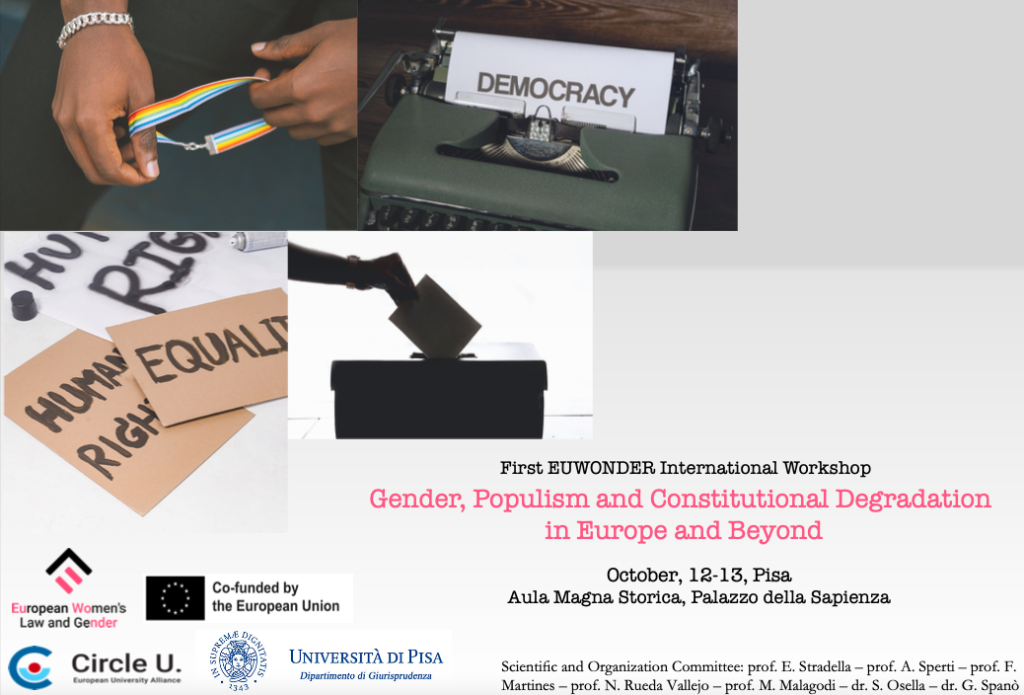
by Giovanna Spanò*
On January 31 (application no. 76888/17), the European Court of Human Rights delivered a Chamber judgement (English summary, full text available in French) concerning a French citizen’s request to set a violation of Article 8 of the Convention vis-à-vis the lack of recognition of his intersexuality as a “neutral” gender in the birth certificate. The Court ruled no violation of article 8 (respect for private and family life) had occurred, since France did not breach its positive obligation to grant effective respect for the applicant’s private life.
At least, two main relevant points come into the picture in Y v. France: a) first, the “challenges” intersexuality involves when confronting a (still strong) binary pattern in institutional “gender categorization”; b) second, the broad European States consensus in not recognizing identities others than “male” or “female”. To add a third c), the impact of intersexuality on society, its ‘social’ sense and sensibility.
a) “…ni l’une ou l’autre ne correspondait à son identité profonde”
In 2015, the Tours tribunal de grande instance recognized the applicant’s claim that his civil status had to be amended in neutral – instead of male – due to his profound discomfort in being pictured by society and by the State itself as a man, notwithstanding his intersex ‘biology’. His perception of his own body had indeed to confront the state officials’ “duty” to give him a place and a status in the whole French society, which only acknowledges a binary categorization: male or female. The applicant had lived his entire life as a man, and his aesthetical features acted as a confirmation of the State choice to portray him as a male, despite his well-known intersexuality at birth. But he also had to confront stereotypes attached to the category as well, as far as behaviors, mannerism and attitudes were concerned, causing stress and anxiety.
Nonetheless, as the European Court assesses through the facts related to the application, it was not just a matter of biology, physical body, or genetic sex: first and foremost, it dealt with identity. Namely, not only the male status in his birth certificate did not “corresponde à une réalité quelconque”, but both binary categories “ne correspondait à son identité profonde”. In this regard, case law could also be retrieved relating to transsexualism, in which “sexual identity” was deemed extremely significant, especially whether sex could not be fully established from a genital, hormonal or psychological standpoints. Despite article 55 of the French civil code necessarily entailed that sex should have been declared at birth, article 57 of a 2011 circulaire on specific rules concerning civil status acts, provided for the option not to mention any sex in the certificate, if it failed in being clearly defined. Nevertheless, this was just, again, a matter of time. This exception would have worked whether the sex could have not been immediately determined, but following medical treatments or due to mere biological development, the birth certificate had to be afterwards completed. The Tours tribunal underlined though, that the same provision did not envisage the option that the sex could have possibly stayed undetermined forever. To say, either even after a certain range of time or at all. This constituted, in the Tribunal’s view, a concrete “vide juridique”, and the applicant’s sex definition at birth was “pure fiction […] sans que jamais il n’ait pu exprimer son sentiment profond”. As a result, the birth certificate had to be amended from male to “neutral”, since “intersex” could have had further implications in some way declaring the creation of a “third” category, also able to deepen and foster additional social stigma as for the ‘labeling’ per se.
This perspective was later set aside by the Orléans Court of Appeal in 2016 and dismissed by the Court of Cassation in 2017.
b) “… la marge d’appréciation est plus large lorsqu’il n’existe pas de consensus entre les États members”
The ECtHR devotes a specific focus and a thorough analysis to the supranational and global panorama. Comparativelyspeaking, there is no overwhelming consensus in ascertaining a “third” category, in addition to the “male” or the “female” status. This is consistent with States’ margin of appreciation, and the latter becomes even wider according to national laws divergence on the topic. Also, the case under scrutiny involved the State’s need to grant and promote certainty, uniformity and reliability of civil status records as a noteworthy general interest, affecting “the social and legal organization of the French system” too. Among thirty-one States, Armenia admits the indication of an “uncertain” sex, whereas Germany (“diverse”), Austria (“diverse, inter, or open”), Iceland (“neutral”), the Netherlands (“not established or X”) and Malta (“undeclared or X”) introduce a third “other” option, in addition to the male and female status, while Belgium, Cyprus, Ireland, Norway and Spain are currently debating and discussing the issue at both legislative and governmental levels.
This wide and diverse formulas thus suggest, in the European Court’s opinion, that each State can and shall choose its own pattern in granting (or not) an official “third” option other than the binary one and that this is plainly and totally consistent with the discretion and appreciation on the topic ensured by the Convention. Indeed, the latter stands for a suppletive, additional and subsidiary source which does not (and cannot) jeopardize the domestic (legal) framework and comprehensive background on the issue. Moreover, national institutions hold and own a democratic legitimacy in regulating the legal status of intersexuality, which strengthens the bonds and the links between them and those affected by their (political) decisions. In fact, as the Court clearly explains as a corollary “lorsque des questions de politique générale sont en jeu, sur lesquelles de profondes divergences peuvent raisonnablement exister dans un État démocratique, il y a lieu d’accorder une importance particulière au rôle du décideur national”.
c) “…déterminer à quel rythme et jusqu’à quel point il convient de répondre aux demandes”
In Y v. France, demands are those raised by intersexuality in general and the applicant’s individual interest in fully living his private life, in particular. As far as the latter is concerned, actually, he did not file a petition in order for a “third gender” to be declared and introduced nationwide, but as for the evaluation of his specific situation vis-à-vis the State (negative) obligation not to authoritatively determine his own identity. Hence, the applicant also recollected the Court’s ruling in which “a estimé qu’il y avait une ingérence dans les droits des individus dans des affaires imposant l’inscription à l’état civil de l’appartenance à une communauté ethnique ou religieuse”.
In fact, the French Court of Cassation doubts that a “new” gender could have hindered the whole French legislative framework, were unjustified, since the recognition in the sole applicant’s case would have not implied the need to adjust all legislation accordingly. The Orléans Court of Appeal had already also underscored the impact a neutral gender could have borne on the French system, even though through a sociological perspective, i.e.: on society as a whole. As Y. v. France states, in fact, the Court of Appeal already showed concerns in relation to the sensitivity of the issue and the balance it required regarding sensitive topics. In particular, the judgement recalls the Orléans Court convincement that “cette reconnaissance pose en effet une question de société qui soulève des questions biologiques, morales ou éthiques délicates”. Thus, whereas the Court of Appeal underlined the threat a “third” gender can constitute to the (binary) perception of society in itself – also as far as the protection of a “new” minority and its further stigmatization as such were concerned – the Court of Cassation emphasized the pivotal (and legitimate) role played by (binary) categories for a definite social organization and the social (and legal) framework, as pillars and foundations of and for the latter.
Consistently, the European Court establishes that the French State reply appeared fair, bearing in mind the objective (and reasonable) balance between the aforementioned general interest, the applicant’s individual interest and the public interest at stake. Nonetheless, the Convention embodies a “living instrument” which encompasses transformation whether and when actual circumstances might change, along with legal and judicial responses. But this inevitably involves “un examen constant eu égard, notamment, à l’évolution de la société et de l’état des consciences”.
In the end, the European Court’s alleged “neutrality” towards gender issues and new claims related to them in this case feels like a “determined” position. In balancing status, raison d’état and l’état des consciences it deliberately chose not to choose for a “transformative” interpretation, preserving national (public) interest in detriment of individual (inner) identity. To say, in order to protect society’s overall (institutional) sense and (general) sensibility.
*Research Fellow, University of Pisa




